- Home
- entertainment
- news
- 13 surprising things you probably didn't know about 'Project Runway'
13 surprising things you probably didn't know about 'Project Runway'
Kirstie Renae

- Bravo's popular competition reality show "Project Runway" has been on the air for 18 seasons, but even die-hard fans might not know everything about it.
- Contestants usually film for 18 hours a day, and the judging process can take up to seven hours.
- Some of the designs are auctioned off after the episodes, and there are rules in place to ensure they're completely original.
- Contestants don't go home immediately after elimination because the show doesn't want anyone to figure out the finalists before the big reveal.
Bravo's "Project Runway" features up-and-coming fashion designers competing for a major cash prize.
The reality competition show has been entertaining fans for 18 seasons with its incredible fashion, high-stakes drama, and talented designers. And although the show's been on the air for over a decade, there are a few things you might not know about it yet.
Here are some interesting fun facts and secrets about "Project Runway."
The cast doesn't have access to things like the internet or television while filming.
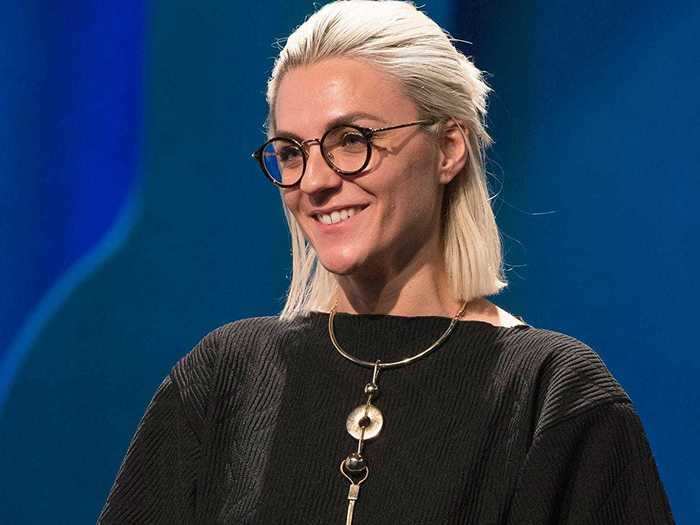
According to a 2013 interview with The AV Club, producer Sara Rea said contestants don't have access to the internet during filming.
"We want all their inspiration to come from the things we leave for them and what they can see. We don't want any outside influence to sway what they're being inspired by or what their emotional state is," she said
She went on to say that while driving around New York City, contestants can see news on billboards or hear of current events, but the producers "try to balance it so it doesn't affect them in a negative way."
Mood Fabrics closes to the public when the designers shop there on the show.
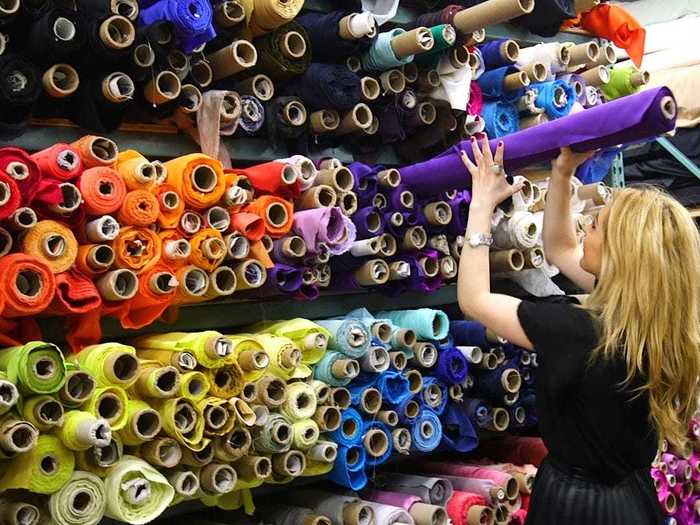
In the same interview with The AV Club, Rea shared that the popular fabric store closes for the contestants.
"We have a very close, long-term working relationship with [Mood] and we make sure we're posted on their schedule so they don't close too early," she said. "We tell them, 'Hey, we'll be there in 30 minutes,' and they start closing down the store for us."
Tim Gunn said he hated season 14 of the show, and he called it "lackluster."
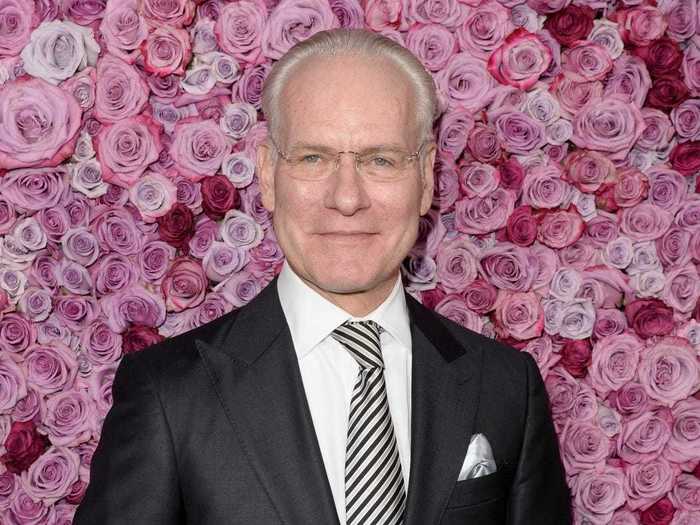
Tim Gunn was a mentor and producer on "Project Runway" for many years, and he has a least-favorite season.
In a 2015 interview with Entertainment Weekly, Gunn said, "I'm telling you — and I haven't said this very much — I hated season 14. I hated it. I felt that other than a couple of designers, they weren't working up to their potential. The whole thing was lackluster."
He went on to say that he felt season 14's contestants were not hungry enough and that the judges didn't offer valuable, constructive feedback to the designers.
A filming day on "Project Runway" can last up to 18 hours.
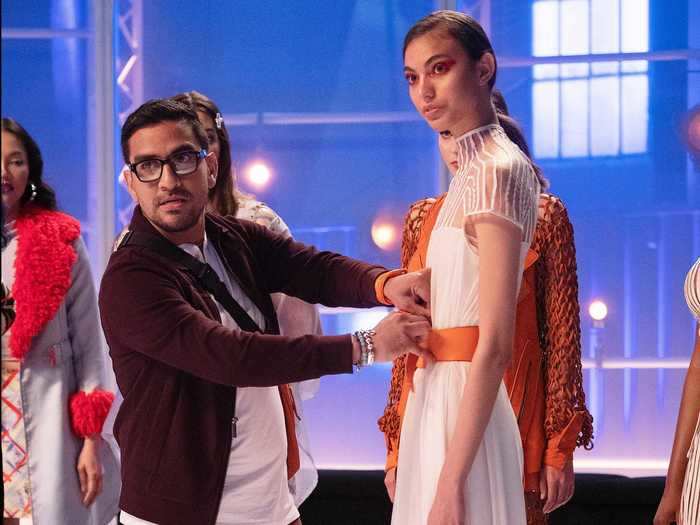
If you think the designers are being snippy with one another, it's possibly because of the difficult schedule and constant filming throughout the production of a season.
Season-two contestant Diana Eng told New York magazine's The Cut in 2009 that the designers are filmed for 18 hours a day and are often woken up with camera crews looming over them.
Rea confirmed in her interview with The AV Club that the shooting and work schedule for "Project Runway" is as grueling as it sounds. She said that the designers work until around 11 p.m. or 12 a.m., and most of them are up and working before 5 a.m.
A few people who have worked on "Project Runway" said that winning doesn't necessarily make designers famous in the fashion industry.
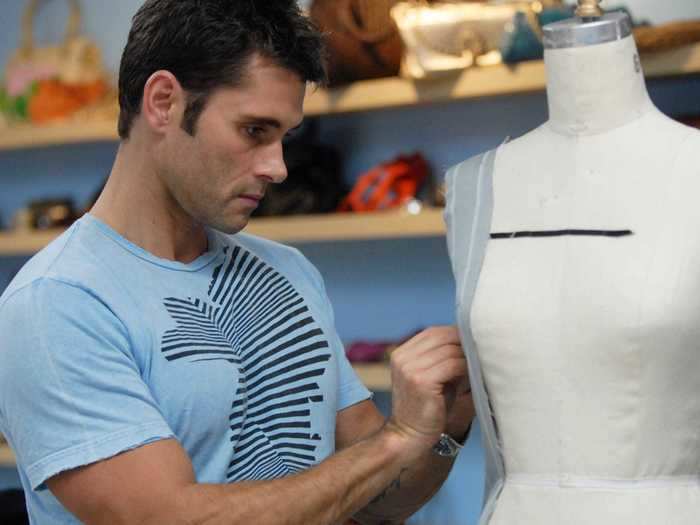
In a 2015 interview with Paper magazine, season-four designer Jack Mackenroth said that despite the show's public reputation as a driving force in the fashion industry, most of the contestants don't go on to be successful designers.
"Most people just go back to their old careers and continue to struggle. Fashion design is a cutthroat business. Well established designers go bankrupt right and left. And quite honestly the fashion industry frowns on 'Project Runway' and doesn't take the designers very seriously," he said.
Former guest judge Teri Agins also expressed that the "Project Runway" winners don't really get a leg up in the fashion industry after the show.
She told The Washington Post in 2014, "One of the reasons [the show] petered was it failed to do what it claimed it would."
Gunn said he wasn't paid for the first two seasons of "Project Runway."
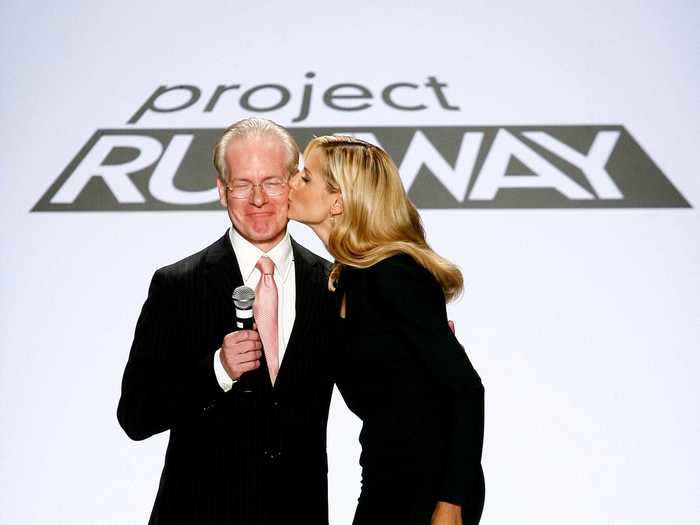
Despite being considered one of the best parts of the show, Gunn said he didn't get paid to be a mentor on the first two seasons of "Project Runway."
Per Oprah.com, Gunn said in an interview with the So Money podcast, "The first two seasons I wasn't paid at all and I didn't know that people were paid for reality television."
He added that it wasn't until someone approached him about representation at the GLAAD Media Awards that he realized "Project Runway" should be paying him.
Sometimes the show auctions off designs, even if they're not completed.
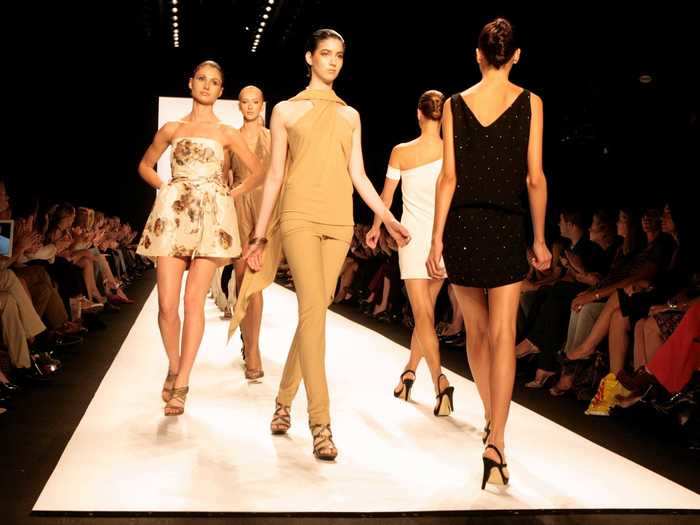
Some of the clothes designed on the series end up being sold on the Project Runway website.
Season-seven winner Seth Aaron Henderson said at a Fashion Week El Paso press conference in 201 that clothes produced by contestants "go up for auction immediately after the show."
"It's clearly stated that these may or may not be finished," joked season nine runner-up Joshua McKinley Cook.
Per New York Daily News, in the past, some of the designs from the show have gone up for auction "as is."
To ensure their creations are totally original, the designers aren't allowed to use any sewing patterns on the show.
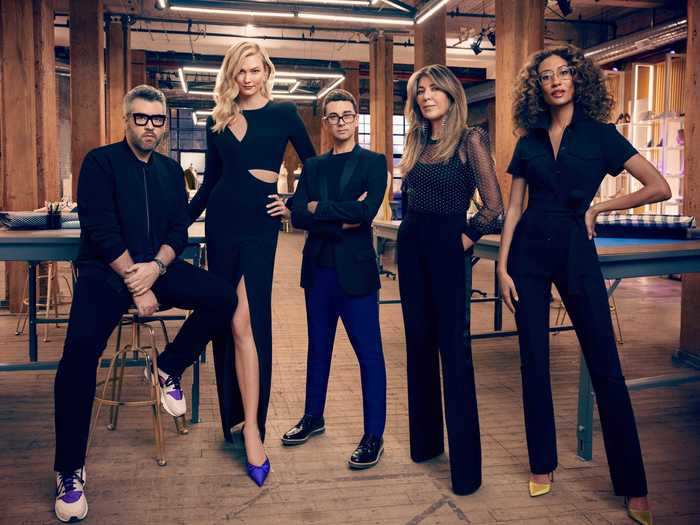
Rea told The AV Club that the show limits the designers' supplies to help ensure everything created is original.
"We don't want them relying on other people's designs or other materials, and we don't want anyone to have an unfair advantage so we limit their resources to what the necessities are with their dress forms and their scissors and their sewing kits," she said.
She continued, "We want them to create from what they know, not from a pattern book. It doesn't help them and it could also be derivative, [and this rule] puts everyone on the same playing field."
The runway show and judging process can take six or seven hours to film.
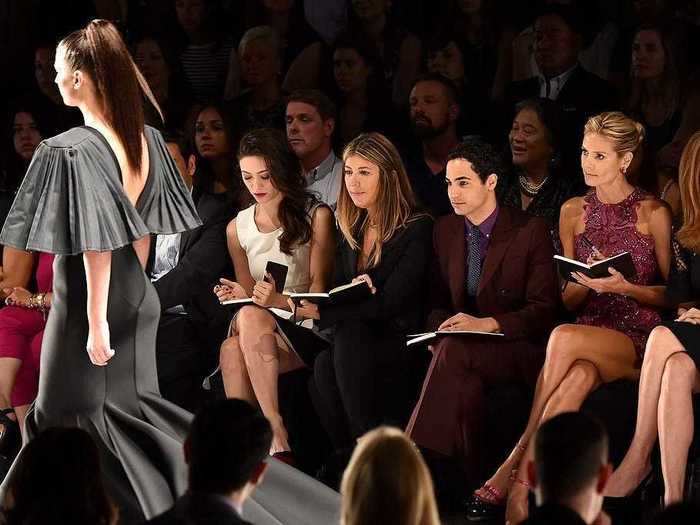
Although the runway show, judging, and elimination typically only take around 10 minutes of each episode, the entire process takes much longer, according to Rea.
The producer told The AV Club, "From runway show to elimination is about six or seven hours. There are breaks in between to move cameras and stuff, but it takes about seven hours."
A lot of thought goes into the supplies offered during the show's unconventional materials challenges.

One "Project Runway" episode that fans look forward to each season is the unconventional materials challenge, during which the contestants must create stunning designs using materials that otherwise wouldn't be used to create clothing.
Rea told The AV Club that there is a team dedicated to curating the unusual materials for these challenges.
"We have a team of people whose main job is to sit around and come up with ideas, and they bring them to us and we try to visualize all the different materials," Rea said.
She continued, "I always like it when they present it to us as a list of what's in that store. Like, what's in a hardware store? It helps you say, 'Well, what would I do? What could they use to make something?' And then we go with what we think would be the most fun and we try to make it different from a previous season."
Heidi Klum and Gunn left "Project Runway" after 16 seasons because they said they were being held back creatively.

In 2018, host Heidi Klum and mentor Gunn chose to leave "Project Runway" together to create a new design competition show with Amazon called "Making the Cut."
Per The Wrap, at Amazon's Television Critics Association panel earlier this year, the pair opened up about their decision to leave.
The pair cited budgetary restrictions and the show's unchanging format as primary reasons why they chose to pursue another series.
"When you do a show, someone always has to pay for it, and other people want you to do certain things, so you can't have the creative freedom," Klum said.
Gunn spoke about the show's format saying, "We were in a lockstep in a way, in a formula that had been determined in season one. And it perpetuated further into season three, and then eventually into seasons 10 through 16, and we couldn't break out of it."
Designers don't get to go home immediately after being eliminated.
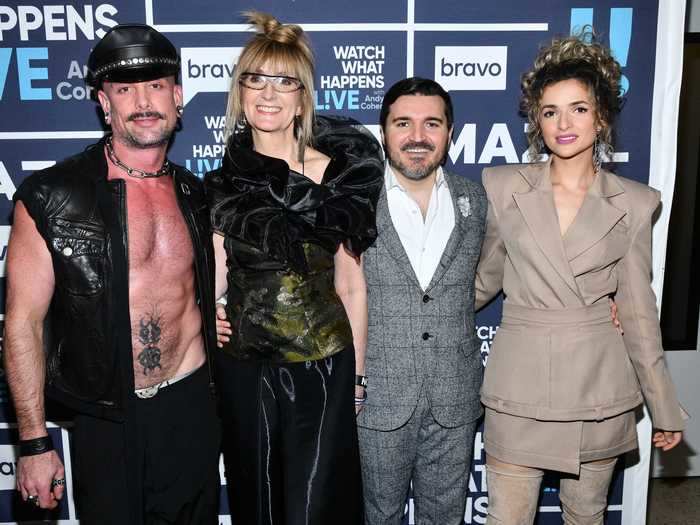
After the designers are eliminated and sent to the workroom to clean up their space, they're not immediately sent home as portrayed on the show — they're "sequestered," potentially for weeks, according to season-nine contestant Bert Keeter.
Speaking at the same Fashion Week El Paso press conference, he said, "They don't let you go home. They basically keep you sequestered. You all travel in a pack even if you are the first person voted off, you're there five or six weeks."
He continued, "They separate you and you go down to the basement and stay down there for 12 to 14 hours. So the people who watch the show can't tell who is off the show. It's torture."
The finalists aren't the only "Project Runway" designers featured at New York Fashion Week.
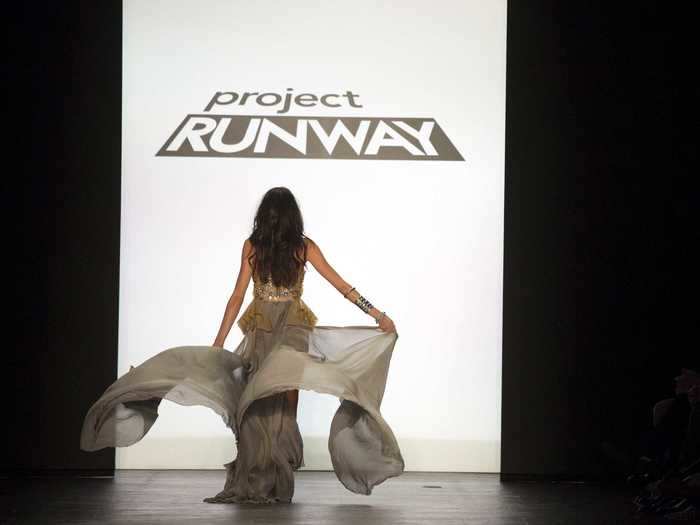
On the finale episodes of some seasons, a handful of finalists debut their collections at New York Fashion Week.
However, in reality, many of the season's designers create and show collections in an effort to keep audience members from guessing who the actual finalists are.
Culture Map Houston reported that for the season-eight finale, 10 of the season's 17 competitors created collections for fashion week.
Rea told The AV Club, "[Non-finalists] get the same amount of time and money as a finalist. They also create the same number of looks for their collection. Otherwise, people may be able to figure out who is 'in' and who is a 'decoy' or an eliminated designer."
Read more:
READ MORE ARTICLES ON
Popular Right Now
Popular Keywords
Advertisement